The U.S. has sent eight warships and one attack submarine to international waters off the coast of Venezuela, nominally to combat “cartels [that] have engaged in a campaign of violence and terror throughout the Western Hemisphere…[and] flooded the United States with deadly drugs, violent criminals, and vicious gangs.” Part of this operation has been the designation of the “Cartel de los Soles” in July, as a specially designated terrorist group. On Tuesday, President Donald Trump celebrated the operation’s first result on Truth Social—a drone strike on a small wooden boat with outboard motors, that he claimed was being used to transport drugs to the U.S.
The entire naval operation raises a number of questions. First, Venezuela is not a leading source of the drugs reaching U.S. streets. The last estimates made by U.S. agencies suggest that between 10 and 13 percent of global cocaine supplies passes through Venezuela, and much of that goes to Europe. The preferred route for cocaine headed to the United States these days is from Colombia through Ecuador and up the Pacific Coast to Central America or Mexico, or through the Western Caribbean. In any case, fentanyl is a bigger threat on U.S. streets than cocaine—it accounts for 70 percent of the fatal overdoses—and none of it comes from Venezuela.
Perhaps more important, there is no actual organization called Cartel of the Suns. The idea of such a cartel emerged 30 years ago as a sort of catchall term to refer to the very real involvement of military officers in drug trafficking. In Venezuela, military officers wear suns on their lapels rather than stars, hence the play on words. Insight Crime, an investigative journalism outlet that specializes in crime in the Americas, has said “the drug trafficking structures in the Venezuelan state are not a cartel, they are a series of often competing networks buried deep within the Chavista regime, with ties going back almost two decades.” Javier Mayorca, Venezuela’s most serious journalist writing about drug trafficking, has suggested the term Cartel of the Suns “has become something of an urban legend that has been growing in Venezuela and as time goes by, gets used to describe different actors.”
The existence of such a cartel gained more formal acceptance in 2020, when the U.S. Department of Justice, as part of a maximum pressure campaign, obtained an indictment naming Venezuelan President Nicolás Maduro as its leader. However, the actual text of the indictment includes no evidence or even concrete claims about a cartel. It accuses Maduro and others of facilitating or permitting various drug trafficking operations, including by the Revolutionary Armed Forces of Colombia (FARC) guerrilla group.
While drug trafficking is serious, even if Venezuela is not a major source of drugs in the U.S., using military operations to combat organized criminal networks as if they were an insurgency or militant group has a poor track record. Profit-seeking crime networks are more fissile and adaptable than armed groups with political objectives, and quickly recover or reconfigure from military strikes. Indeed, the decades-long “war on drugs” has had virtually no impact on the flow of narcotics into the U.S.
While the Venezuelan diaspora in the U.S. and elsewhere has been abuzz with the possibility of a U.S. invasion, with many envisioning the long-awaited arrival of the Marines to free their homeland from tyranny, that scenario is unlikely. Maduro has mobilized a citizen militia he claims numbers 4 million people. This number is certainly inflated, and in any case, a boots-on-the-ground invasion is really out of the question. In fact, there are not nearly enough U.S. troops on these ships for such an operation, and if there is one thing Donald Trump has been consistent about throughout his career, it is an aversion to extended military occupations.
However, Trump rather likes airstrikes—hitting targets in Syria, Yemen and Somalia in his first term, and Iran most recently. The assets he has sent to the southern Caribbean are certainly capable of launching missile strikes. But this too seems unlikely. Reaching any significant target would require first taking out the Russian-built, and probably operated, S-300VM air defense system, a doable but by no means small task. Such a move would certainly complicate tenuous relations between Trump and Vladimir Putin at precisely the time the former seeks to broker peace in Ukraine. In any case, even if Trump were to assume these costs, airstrikes on their own rarely lead to regime change and most likely would lead to an even more paranoid, more repressive version of the current government.
The pressure provided by the U.S. military build-up could conceivably cause a crack in the regime. But here as well, without an articulated opposition in Venezuela, such a break would probably lead to a reshuffling among Chavista leaders that is just as likely to be more repressive as more democratic.
So what other motives does the Trump administration have if Venezuela is not a significant source of drugs to the U.S. and regime change is unlikely? When Maduro stole the July 28, 2024, presidential election, opposition leader María Corina Machado and those around her basically decided they were not going to participate in more elections and instead refocused their attention on an effort to generate international military intervention, repeating continually that Maduro is the head of the Cartel de los Soles and that the “Tren de Aragua” is the operational branch of the Cartel de los Soles—indeed the Trump administration said the boat that was taken out on Tuesday belonged to the Tren de Aragua. This group is indeed a pernicious crime network in Venezuela that has spread to parts of Colombia, Peru, and Chile. But it has a very limited presence in the U.S., is not known to engage in maritime drug operations, and is certainly not controlled by Nicolás Maduro.
This entire discourse lacks substantial evidentiary support and has been contradicted by U.S. officials. But as false stories of “weapons of mass destruction” in Iraq made clear two decades ago, in the right context the tall tales told by displaced politicians seeking foreign intervention in their home countries can take on a life of their own. In this case, claims of Maduro using criminal groups to invade the U.S. have been repurposed by an administration that lives and breathes conspiracy theories, loves political theater, and is willing to use whatever means possible to deport undocumented immigrants.
Which brings us to an additional motivation for this operation. In March, Trump deported approximately 250 Venezuelans to a prison in El Salvador, without due process. He justified this action by invoking the 1798 Alien Enemies Act, which permits the government to deport citizens of an enemy country during a time of war, without due process. Lower courts barred Trump from deporting detainees without the opportunity to defend themselves, a decision upheld in May by the Supreme Court.
However, the Supreme Court did not actually rule on the legality of the Trump administration’s use of the Alien Enemies Act, but rather on procedural issues. They sent the case back to the 5th Circuit Court of Appeals in New Orleans, which decided on Tuesday, in a split decision, that the administration could not use the AEA because the presence of Tren de Aragua in the U.S. did not amount to a “predatory incursion.” The case will undoubtedly return to the Supreme Court.
In this context, having warships off the coast of Venezuela, presumably to fight off Cartel de los Soles and its supposed operational arm, the Tren de Aragua, from “flooding the U.S. with drugs,” could pass muster for a “military conflict.” Tuesday’s strike will certainly provide some justification, and an exchange of fire with Venezuelan forces—not unlikely since Maduro has deployed his own ships and drones—would provide even more. Such new facts will likely enable the Supreme Court to argue that “what amounts to a predatory invasion is a matter of political judgment” and permit the use of the Alien Enemies Act for Venezuelans.
The cruel irony here is that a military operation applauded by Venezuelan immigrants in hopes of freeing their country from Nicolás Maduro is more likely to free Donald Trump to deport them from the U.S., without the benefits of due process.
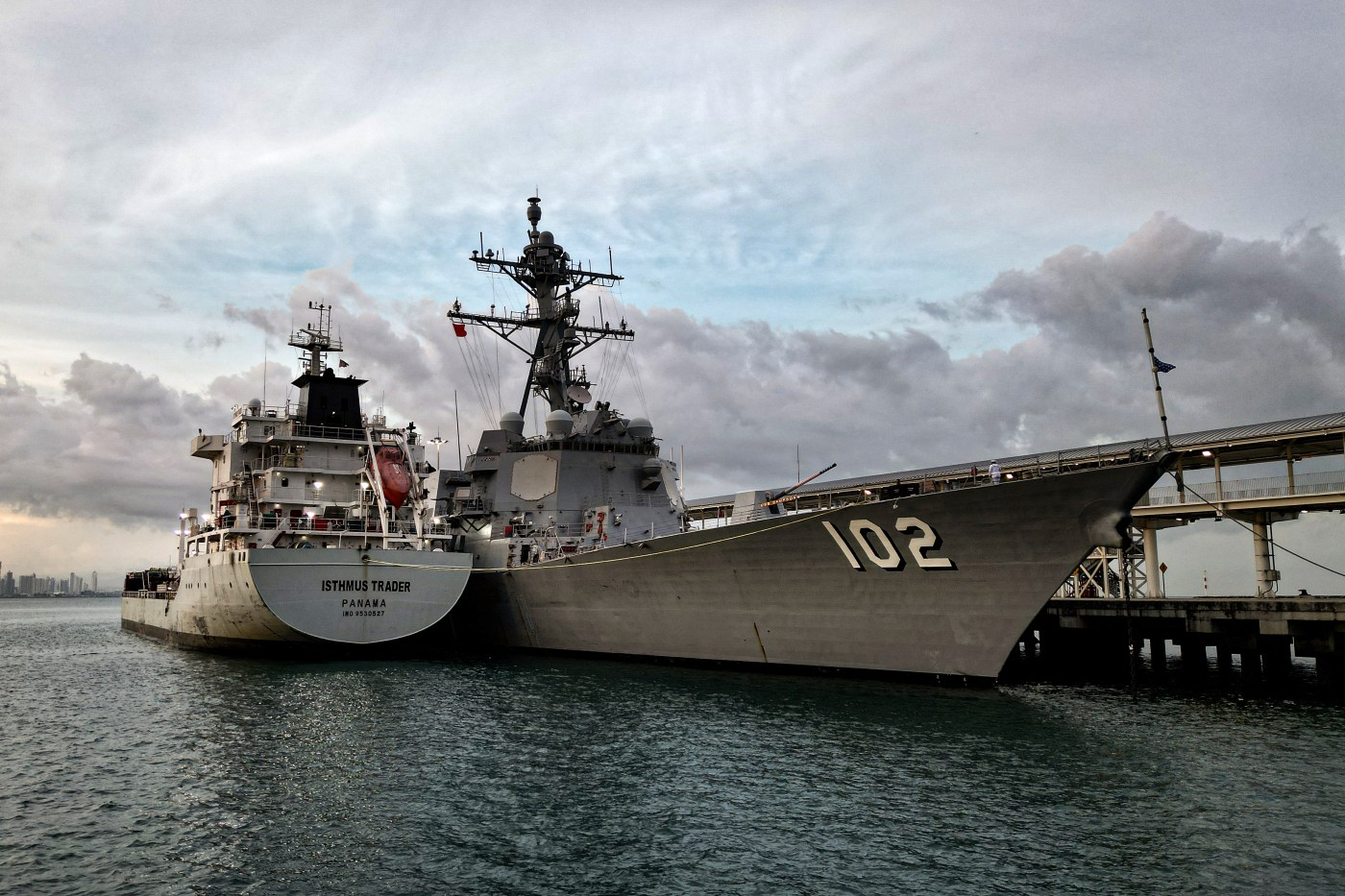
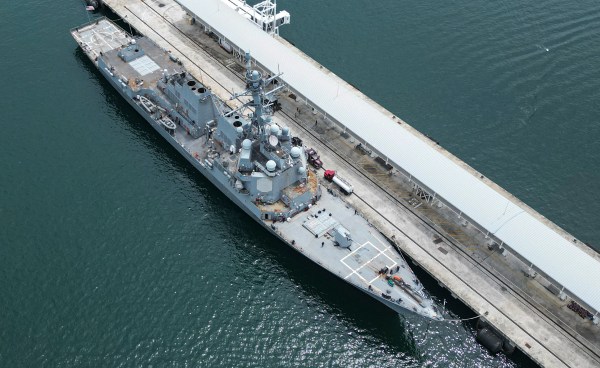
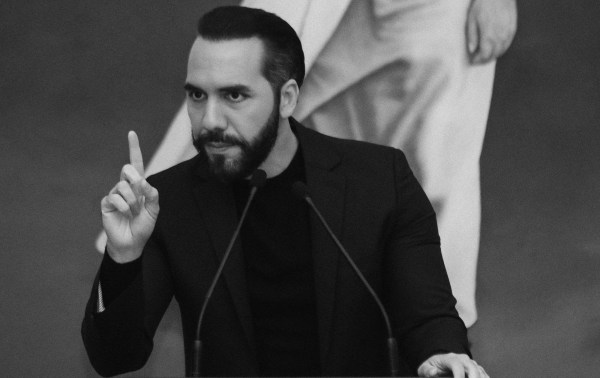
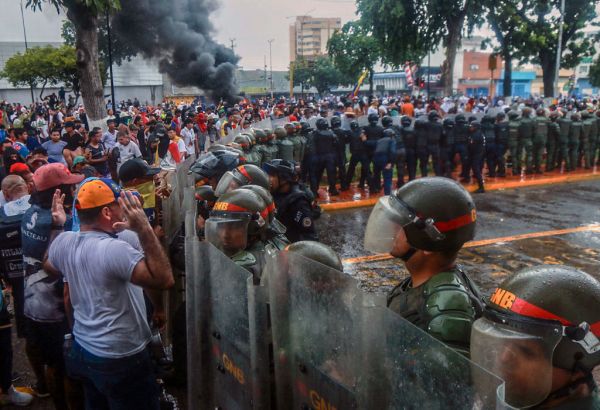
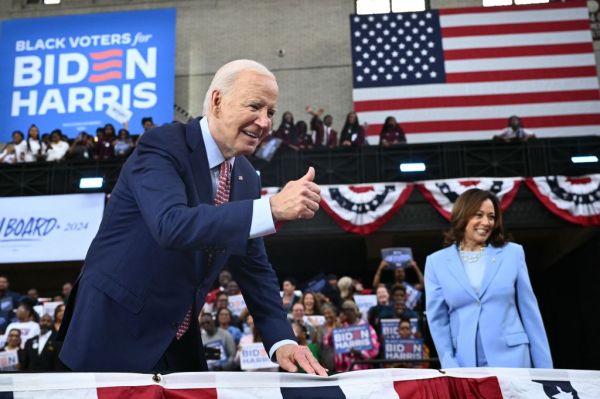
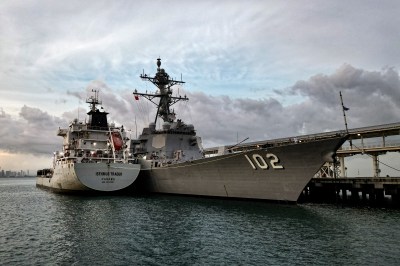
Please note that we at The Dispatch hold ourselves, our work, and our commenters to a higher standard than other places on the internet. We welcome comments that foster genuine debate or discussion—including comments critical of us or our work—but responses that include ad hominem attacks on fellow Dispatch members or are intended to stoke fear and anger may be moderated.
With your membership, you only have the ability to comment on The Morning Dispatch articles. Consider upgrading to join the conversation everywhere.